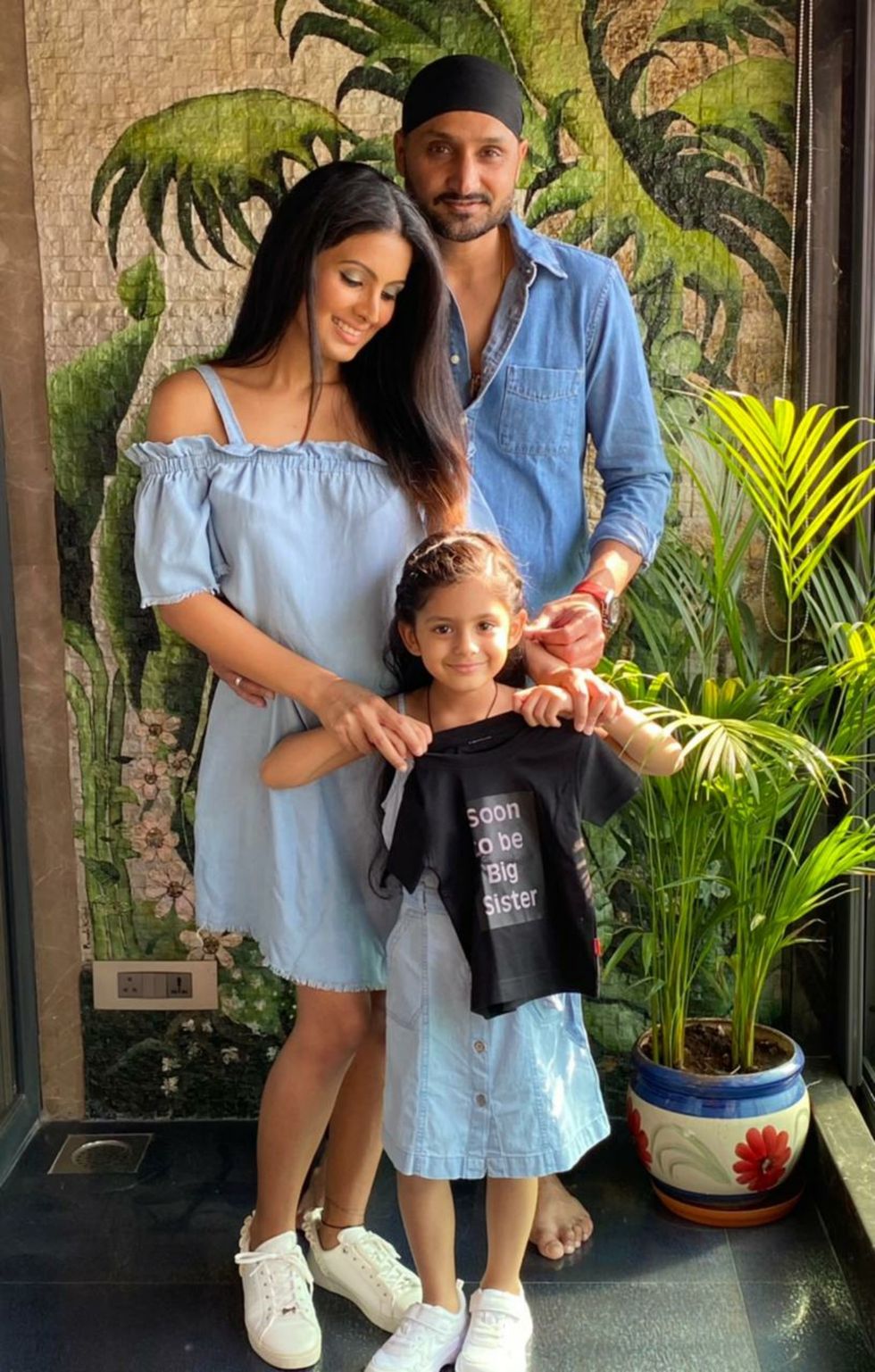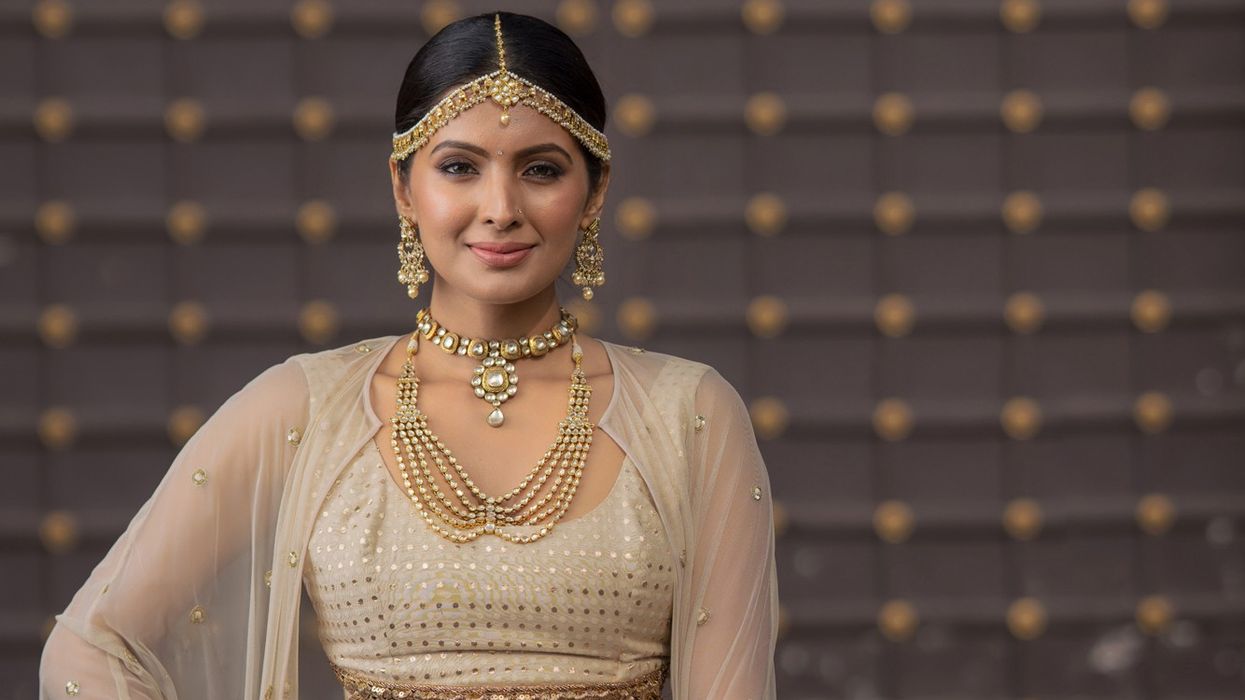HOW ACTRESS GEETA BASRA IS ENJOYING HER TOUGHEST BUT MOST REWARDING JOB
STEPPING back from the spotlight to start a family doesn’t seem to have affected Geeta Basra and she is happier than ever.
The British Bollywood actress married Indian cricketer Harbhajan Singh in 2015 and has been on cloud nine ever since they welcomed their second child, a baby boy, on July 10. The couple are already parents to adorable daughter, Hinaya Heer Plaha, who was born in 2016, and are setting couple goals for others to follow.
Eastern Eye caught up with Geeta to talk about motherhood, sharing family duties with husband Harbhajan Singh, self-love, and what it means to be a woman. The actress also opened up about the relationship she shared with her parents, while growing up in the UK.
What is it like being a mother and did your first child Hinaya change you?
It’s the best thing in the world. Hinaya has changed me immensely. We say we teach children, but the reality is that children teach us a lot more. After motherhood, we change as a person, our nature changes and so does our patience level. Everything is according to them. I believe we truly learn the meaning of “unconditional” because of our kids. I don’t think we ever really understand the true notion of this emotion until we become parents ourselves. Before Hinaya was born, everything was about me. The moment she came into my life, everything changed. Everything became about her.
Did you learn anything new about your daughter’s likes and dislikes over the period of lockdown?
Yes, of course. Only a mother knows about her child’s likes and dislikes. I can tell by her face and by her actions if she likes something or not. Ever since she was born, I have been with her every single day.
Does she understand that her parents are celebrities?
I don’t know whether she understands this or not, but she loves watching her papa’s song from his upcoming south film on repeat. She loves watching us on TV. I think she knows that ‘okay, this is what they do’. I don’t know if she understands the term ‘celebrity’, but she has grown up with the idea that her parents come on TV. She has seen us on The Kapil Sharma Show. She watches my songs and Bhajji’s cricket matches on the television.

Do you split parenting duties with your husband?
Yeah, absolutely! Right now, I am doing this interview, so Bhajji has taken the load of bathing Hinaya. Most of the times in the day, Bhajji shares the load. He loves to be with her, bond with her, and fulfil his fatherly duties. It’s nice because he has not had that time before. These days, I don’t have to do much, so I take rest. He is doing most of the work with Hinaya.
What is one piece of advice for moms on their worst days?
There’re going to be days when things will be out of control and you won’t know how to handle them. You’re going to have sad days and days where you just want to kill anyone in front of you. There are going to be the days when you are just the happiest. It’s just normal. Your body goes through hormonal changes. You’re going to have those overwhelming feelings and anxieties. Being a mother is the hardest job in the world. It’s really tough, I know. Have a good support system around you.
Tell us more...
I think that it’s very important to have the right support around you as a pregnant woman. If you don’t get it, that’s very hard on a woman because without support, to go through these nine months is very tough. You got to be strong and stay as positive as possible. Try to do something that makes you happy, like reading, walking or listening to music.
What would you say is the best part of being a mother?
You can’t define it in one point, like this is the best part of being a mother. It’s a lifelong journey. It’s not something that just one day you are a mother; you are a mother 24 hours a day, every single day of the year. The moment you become a mother, you’re responsible for everything. It’s you who is in control of that child. It’s an everyday process. Every day you are learning something new about yourself and your child. The best part is that it’s something that you have created and a part of you. It’s a part of two people who loved each other, who came together and brought this child together into the world. It’s a mixture of both of you. You see yourself in your child; your husband sees himself in the child and that’s the most beautiful thing. That’s all it is. Being a mother is the greatest role I have ever, ever played. No matter how many roles I have played on-screen, this is by far the most rewarding and satisfying feeling in the world.
What was your relationship with your own parents like?
Great. I’m a mummy’s girl. I definitely am closest to my mom. She has been my greatest support system. She is super intelligent and super smart. From running businesses to raising three kids, she has done it all. For me, she is an inspiration. It’s because of her I have learnt so much about how to be a good mother. She is for me an epitome of being a mother, like a role model. If it wasn’t for her, I wouldn’t have come to Mumbai in the first place. It’s she who took me to Mumbai and supported my decision. After being a parent myself, I know how hard it is to let your child go to another country. It was not like I was going to another city in the UK, I was going to travel across the world. So, if that support wasn’t there from my mom, I definitely wouldn’t have been here in the first place.
Was there something your parents did when you were a kid that you swore you would never do yourself?
My parents were very strict when I was young, especially my dad. I was the first child, and the first one always gets blamed for everything. You are always the one who is wrong. When you have two younger siblings, they would get away with everything and I would be the one who would be scolded. When I was young, I always thought I would never be like that with my kids. But when you have kids, you end up understanding why your parents were like that and you end being exactly the same because of your protectiveness and possessiveness towards your kids. Then you understand your parents’ point of view as to why they were like that.
How have your notions of what it means to be a woman changed over your lifetime?
Before it was just about me, my life, my career, my ways of living, and my independence. As you mature, you evolve and become wiser. You aren’t going to be the same person anymore that you were at 20 or 21. It’s just a process of life. Every single person is going to change over time. No one stays the same. When you become a mother, you understand life. You understand what your true happiness is. My happiness lies in raising my children well. Before it would have been about being in the industry, my ambitions, my passion. Having said that, never forget your passion, even if you are a mother. As a woman, we always put our family first. But at the same time, it’s so important that you always remember your passion and your desires. Don’t lose your identity. Do what makes you happy.




